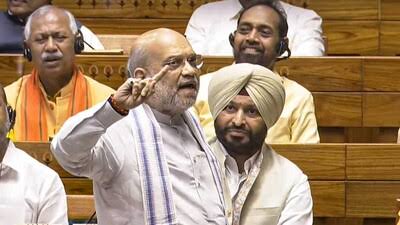The Waqf Act in India regulates properties endowed by Muslims for religious, charitable, or pious purposes.
Originally enacted in 1995, it has been amended several times, with the latest changes introduced through the Waqf (Amendment) Bill, 2024, effective as of April 2, 2025.
Below are 10 key changes in simple, factual terms:-
Renamed Act:
The Waqf Act, 1995, is now called the United Waqf Management, Empowerment, Efficiency and Development Act, 1995.-
Who Can Declare Waqf:
Only Muslims practicing Islam for at least five years and owning the property can declare it as waqf.-
Non-Muslim Inclusion: Central and state Waqf Boards must have two non-Muslim members, and the CEO can be non-Muslim.
No ‘Waqf by User’: Properties can no longer be recognized as waqf based on long-term use.
District Collector’s Role: The District Collector now surveys waqf properties and decides if a property is waqf.
Mandatory Registration: All waqf properties must be registered with the District Collector’s Office and a central portal.
High Court Appeals: Waqf Tribunal decisions can now be challenged in the High Court.
CAG Audits: The Comptroller and Auditor-General can audit waqf accounts for better oversight.
Central Portal: A new online portal and database manage waqf records to improve transparency.
Women’s Rights: Women must get their inheritance before a waqf is declared, and waqf income supports widows, divorced women, and orphans.

IN SUMMARY
The Waqf (Amendment) Bill, 2024, introduced key changes to the Waqf Act, 1995. It deletes the “Waqf by user” provision, which recognized properties as waqf based on long-term use. Amendments alter the composition of the Central Waqf Council and State Waqf Boards, now requiring non-Muslim members. The bill assigns the District Collector a new role in surveying waqf properties and resolving disputes. It mandates registration of all waqf properties with the District Collector’s Office and a central portal. Appeals against Waqf Tribunal decisions can now go to the High Court, and audits by the Comptroller and Auditor-General are introduced.
These amendments aim to streamline administration, enhance transparency, and address issues like mismanagement and disputes over waqf properties, shifting some powers from Waqf Boards to government officials.
